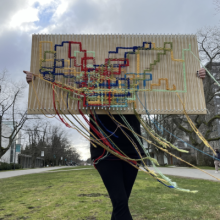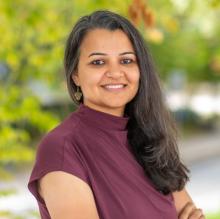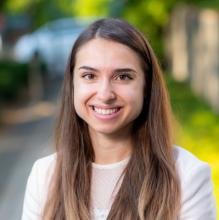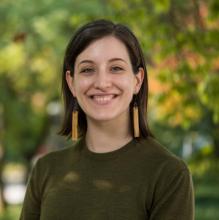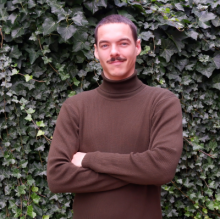Research Description
My doctoral research is centred on teacher education in the algorithmic society. Algorithms make predictions and automated decisions across our political, social and economic systems and in our everyday lives. Algorithms determine who gets a home loan, who gets arrested, who gets prioritized for medical treatment and who gets government services. Algorithms shape our beliefs about the world, our relationships and our tastes and preferences. In schools, algorithms decide what counts as learning, predict students’ progress and automatically determine their access to knowledge, assess students' work and evaluate teachers’ performance. In these ways and more, algorithms have become intractably integrated into our societal systems and everyday lives, with the functionality “to reinforce, maintain or even reshape” our understandings of reality. As “the commercial interests of technology companies and the policy interests of government agencies have converged,” public and private institutions alike have become algorithmic, functioning through the collection and processing of data to measure, calculate, predict and automate society. What’s more, algorithmic systems often reflect and reinforce biases based on datafied identity categories, such as gender, sexuality, race and ethnicity and then make discriminatory automated decisions according to these biased algorithmic outputs. Teachers must not only navigate the algorithmic complexities of personal, professional and public life, but they must also help their students do so. My research aims to understand power relations within particular teacher-algorithm relationships, understand what it is like to be a teacher in such a relationship and explore possibilities for self-reconstitution and resistance through a creative, collaborative methodology.
What does being a Public Scholar mean to you?
Being a Public Scholar means expecting more from my work and myself than is required, pushing the traditional boundaries of academic research to expand ideas of what counts as knowledge and how knowledge can be "properly" represented and prioritizing the public good. Being a Public Scholar also means finding renewed excitement for my work and becoming energized by the opportunity to create something new and meaningful for others and myself.
In what ways do you think the PhD experience can be re-imagined with the Public Scholars Initiative?
The Public Scholars Initiative has created an interdisciplinary network of dedicated, publicly-minded scholars that positively disrupts the often solitary PhD experience. For me, it has created an opportunity to expand my research beyond written dissertation requirements to include creative, collaborative, community-focused research.
How do you envision connecting your PhD work with broader career possibilities?
My focus is on what I can do right now with the privileged position I have as a PhD student at a well-respected university. One of the reasons I decided to pursue a PhD is to spend time thinking about and doing what I cared deeply about. I’m sure there will be diverse career possibilities when the time comes, and I hope I am in the position to choose a career path that lets me hold on to my ideals as much as possible.
How does your research engage with the larger community and social partners?
My research engages with the larger community in every way. My dissertation research is designed according to my commitment to working with and learning from practicing schoolteachers in ways that they find most helpful.
Why did you decide to pursue a graduate degree?
There were many reasons I decided to pursue a doctoral degree. The opportunity to devote time and energy to study was chief among them, as was the possibility of pushing my thinking and creativity beyond what was possible within my previous work environments.
Why did you choose to come to British Columbia and study at UBC?
I chose to pursue my PhD at UBC because of the breadth and depth of educational experiences available and the opportunity to live and work in such a beautiful city and province.

